- Who's Afraid of Virginia Woolf? (1966)
- Easy Rider (1969)
- Leaving Las Vegas (1995)
- Platoon (1986)
- The Boost (1988)
- Requiem for a Dream (2000)
- The Doors (1991)
- Barfly (1987)
- Apocalypse Now (1979)
- Pulp Fiction (1994)
- Super Fly (1972)
- Saturday Night Fever (1977)
- The Last Detail (1973)
- Kids (1995)
- Traffic (2000)
- Belly (1998)
- The Big Lebowski (1998)
- Drugstore Cowboy (1989)
- The Panic in Needle Park (1971)
- The Man with the Golden Arm (1955)
- Born on the Fourth of July (1989)
- New Jack City (1991)
- Urban Cowboy (1980)
- Another Day in Paradise (1998)
- Days of Wine and Roses (1962)
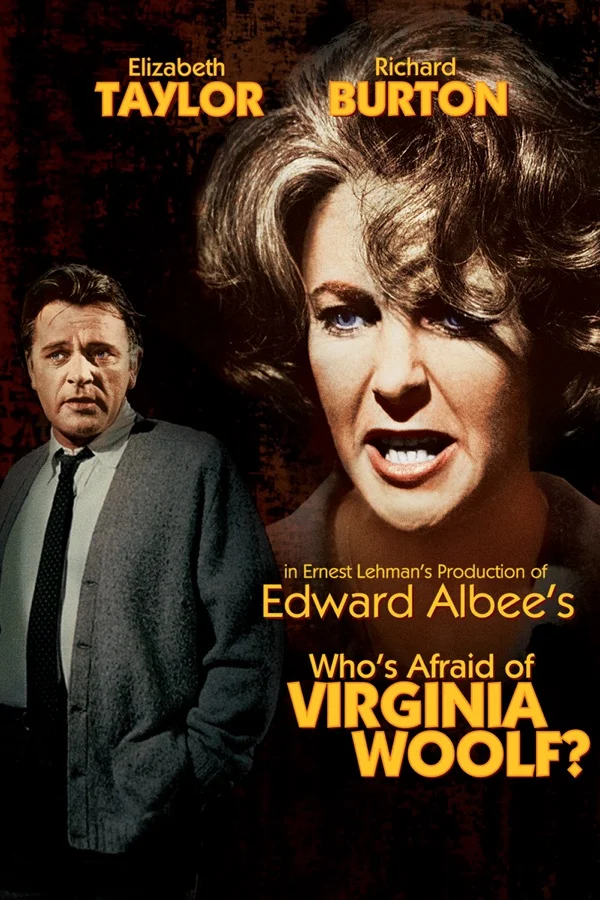 Think Elizabeth Taylor was the most beautiful woman of her time? Well, forget it. She's at her ugliest for a big
night of fights and games with the greatest actor out of Wales: Richard Burton. Elizabeth Taylor is shockingly
unrecognizable, gaining thirty pounds and looking like a trashy, alcoholic, and washed-up hag. That acid tongue
of hers is unbelievable.
Think Elizabeth Taylor was the most beautiful woman of her time? Well, forget it. She's at her ugliest for a big
night of fights and games with the greatest actor out of Wales: Richard Burton. Elizabeth Taylor is shockingly
unrecognizable, gaining thirty pounds and looking like a trashy, alcoholic, and washed-up hag. That acid tongue
of hers is unbelievable.
 "An astonishing work of art and an overpowering motion picture experience" is how one Los Angeles Times
critic described Easy Rider. Dennis Hopper, Peter Fonda, and Jack Nicholson will always be identified
with this film. Entering the Deep South, the tragic ending is memorable because of what George Hanson said:
"They're scared of what you represent to 'em. What you represent to them is freedom."
"An astonishing work of art and an overpowering motion picture experience" is how one Los Angeles Times
critic described Easy Rider. Dennis Hopper, Peter Fonda, and Jack Nicholson will always be identified
with this film. Entering the Deep South, the tragic ending is memorable because of what George Hanson said:
"They're scared of what you represent to 'em. What you represent to them is freedom."
 The Academy Award committee has a long, extensive history of giving out Oscar nominations and wins to actors
and actresses who play drunks. Not the one to miss a chance, Nicolas Cage gives the performance of his career,
netting an Oscar win. Leaving Las Vegas is a difficult movie to watch but has many iconic moments. It's
also haunting and surreal with more questions than answers.
The Academy Award committee has a long, extensive history of giving out Oscar nominations and wins to actors
and actresses who play drunks. Not the one to miss a chance, Nicolas Cage gives the performance of his career,
netting an Oscar win. Leaving Las Vegas is a difficult movie to watch but has many iconic moments. It's
also haunting and surreal with more questions than answers.
 Platoon is an outstanding Vietnam War picture, depicting the realities of infantry combat. The performances
by the ensemble cast are brilliantly rendered, but it's Tom Berenger and Willem Dafoe who take the film to
another level that makes the whole thing a tragedy. The most thrilling, impactful scene is Elias' death run.
Platoon is an outstanding Vietnam War picture, depicting the realities of infantry combat. The performances
by the ensemble cast are brilliantly rendered, but it's Tom Berenger and Willem Dafoe who take the film to
another level that makes the whole thing a tragedy. The most thrilling, impactful scene is Elias' death run.
 The Boost is perfectly tailor-made for James Woods. It's a top five performance of his career. Nobody
could've played the role of a charmingly smooth, fast-talking salesman better than him. His chemistry with Sean
Young is electrifying, and the fallout of their real-life relationship was legendary during the late 80's that
wouldn't stop there for her.
The Boost is perfectly tailor-made for James Woods. It's a top five performance of his career. Nobody
could've played the role of a charmingly smooth, fast-talking salesman better than him. His chemistry with Sean
Young is electrifying, and the fallout of their real-life relationship was legendary during the late 80's that
wouldn't stop there for her.
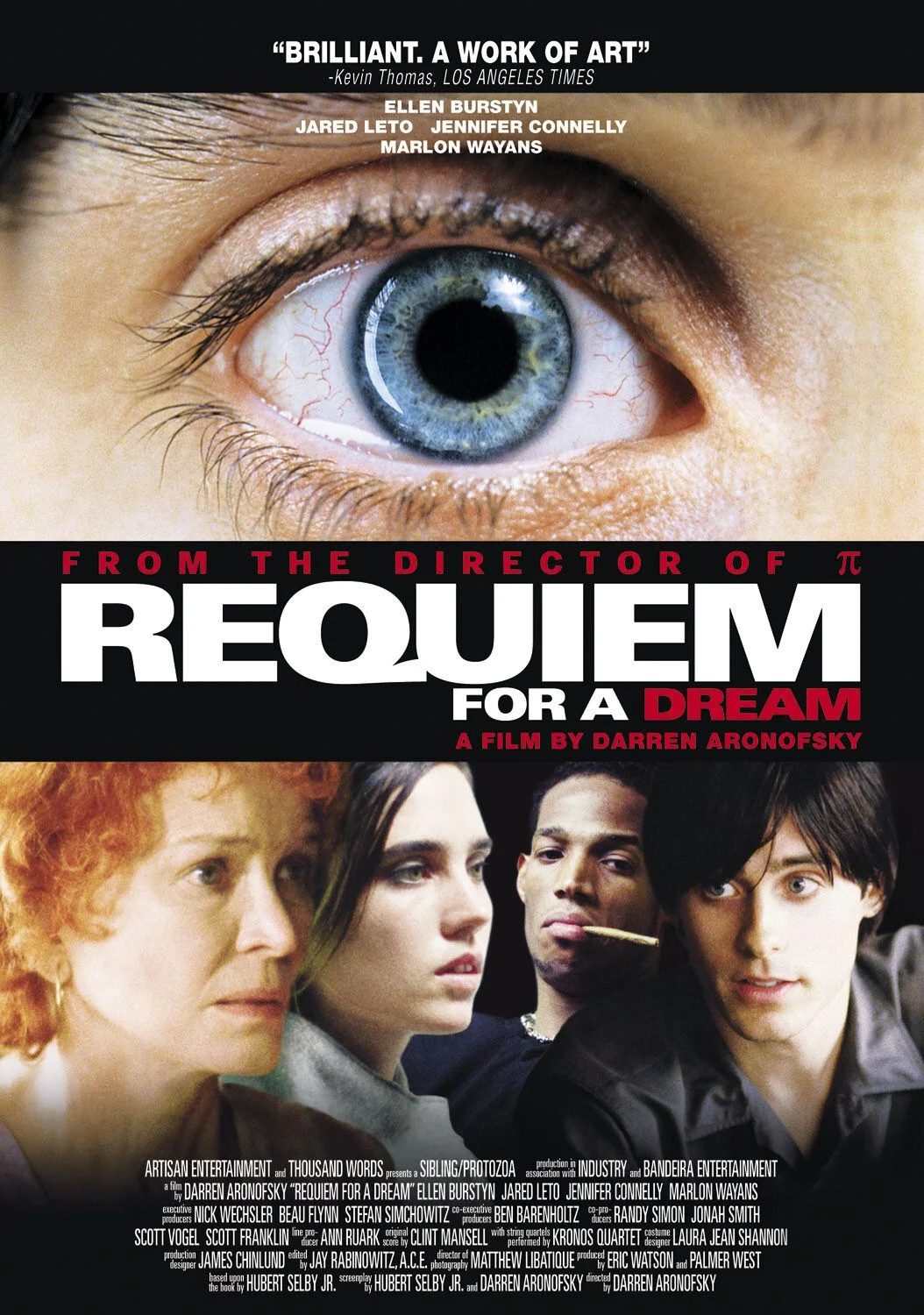 If there's a strong reason not to abuse drugs, legal or illegal, then, by all means, see Requiem for a Dream.
The free fall of individual characters into despair is what makes this one extraordinarily haunting in the long
run. The editing team did a wonderful job putting the film together as the horrific spectacle that it is.
If there's a strong reason not to abuse drugs, legal or illegal, then, by all means, see Requiem for a Dream.
The free fall of individual characters into despair is what makes this one extraordinarily haunting in the long
run. The editing team did a wonderful job putting the film together as the horrific spectacle that it is.
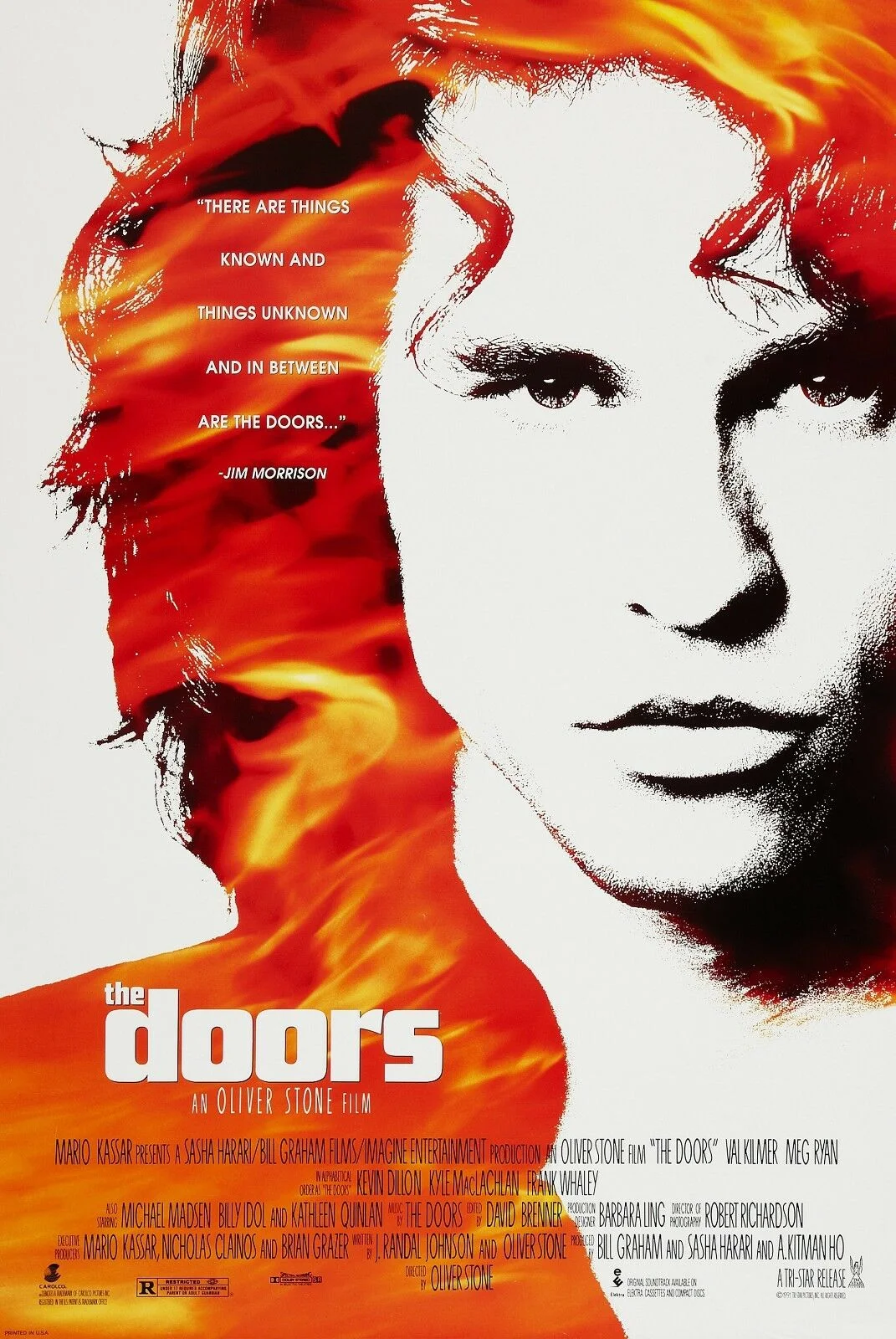 Val Kilmer didn't play Jim Morrison; he became Jim Morrison. The Doors is a creative film because it's a
psychedelic trip. Val Kilmer just floats in and out. The best scene is when Kyle MacLachlan had a vision of
Val Kilmer onstage dancing around with a couple of American Indians.
Val Kilmer didn't play Jim Morrison; he became Jim Morrison. The Doors is a creative film because it's a
psychedelic trip. Val Kilmer just floats in and out. The best scene is when Kyle MacLachlan had a vision of
Val Kilmer onstage dancing around with a couple of American Indians.
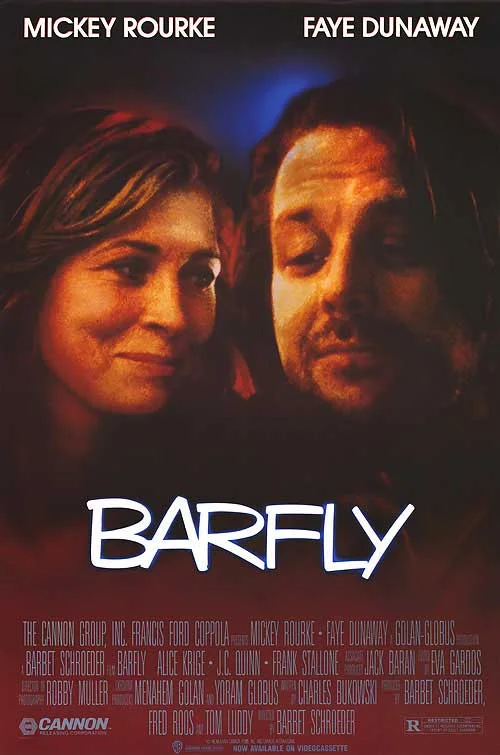 Mickey Rourke steals the show from start to finish in Barfly and outshines Faye Dunaway, a highly
respectable actress, in every scene. What helps the film the most is Charles Bukowski's writing to make the
alcoholic cynosure a tolerable character who views life through an interesting lens.
Mickey Rourke steals the show from start to finish in Barfly and outshines Faye Dunaway, a highly
respectable actress, in every scene. What helps the film the most is Charles Bukowski's writing to make the
alcoholic cynosure a tolerable character who views life through an interesting lens.
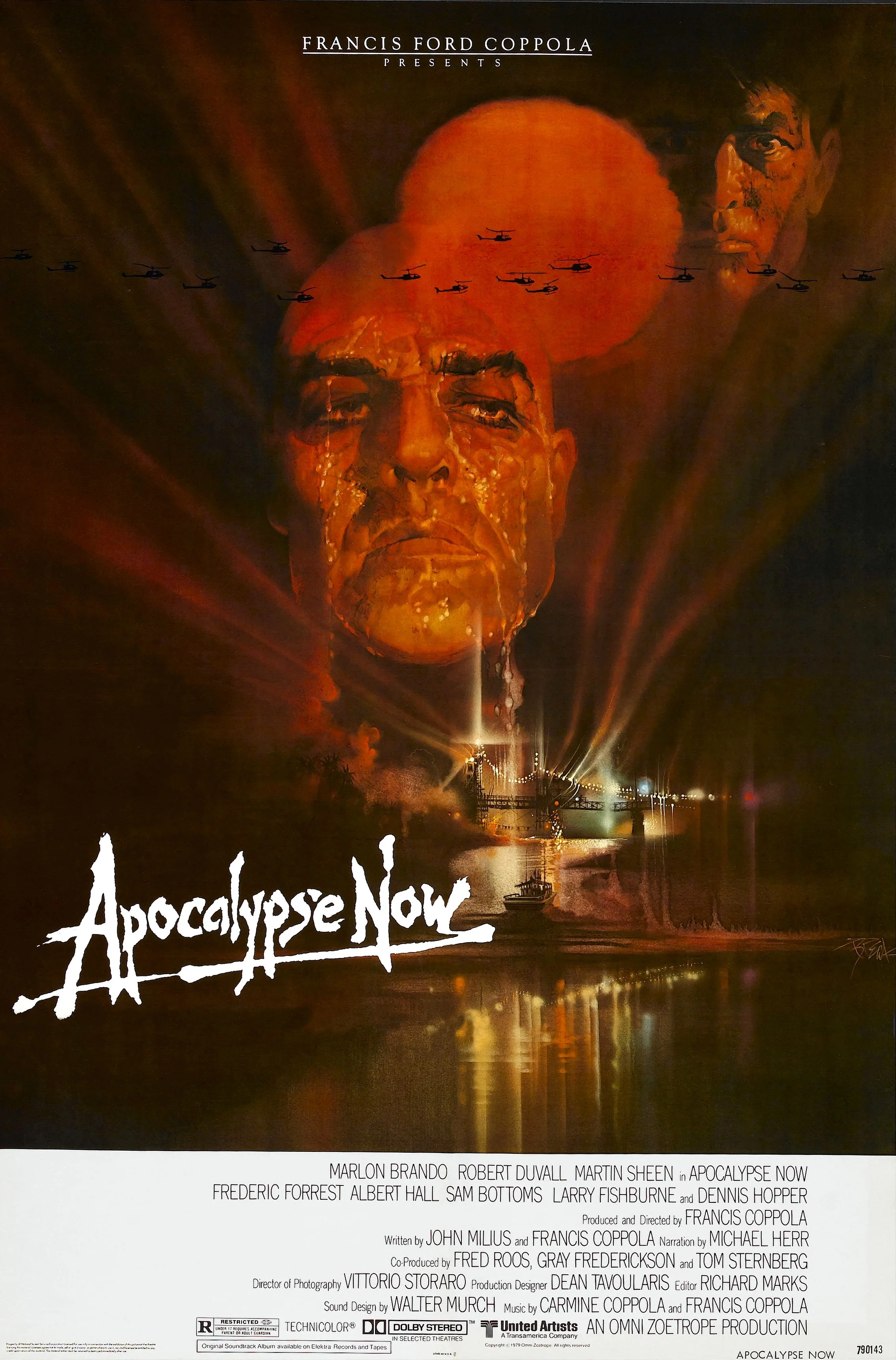 Full of iconic scenes and lines, Apocalypse Now is among the best of the decade as it tops madness with
more madness. That's what the movie is all about: the exploration of insanity in the journey toward the heart
of darkness. Making a case for the deterioration of Marlon Brando's mind may not be far-fetched, either.
Full of iconic scenes and lines, Apocalypse Now is among the best of the decade as it tops madness with
more madness. That's what the movie is all about: the exploration of insanity in the journey toward the heart
of darkness. Making a case for the deterioration of Marlon Brando's mind may not be far-fetched, either.
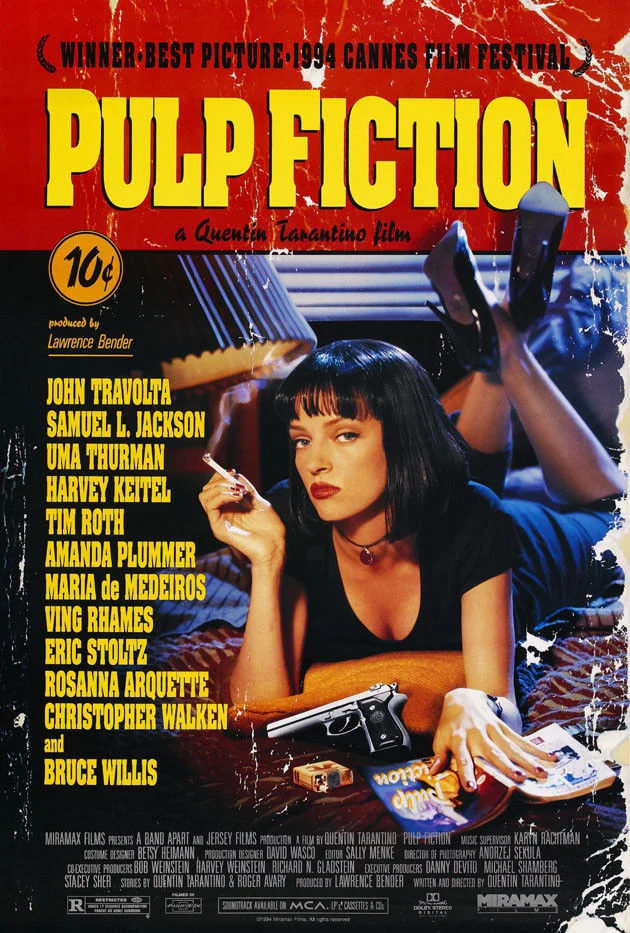 The performances, the conversations, the style, and the cult feel are what Pulp Fiction is all about.
John Travolta is perfect. Uma Thurman is brilliant with him. Their dance scene is timeless. Samuel L. Jackson
is special and has the most unforgettable scene of his career.
The performances, the conversations, the style, and the cult feel are what Pulp Fiction is all about.
John Travolta is perfect. Uma Thurman is brilliant with him. Their dance scene is timeless. Samuel L. Jackson
is special and has the most unforgettable scene of his career.
 In some actors' lifetime, there's only one film they'll forever be associated with and nothing else matters,
and for Ron O'Neal, it's Super Fly. He's iconic as Youngblood Priest. Unlike a lot of movies in the
Blaxploitation genre, it's at once serious and original. To go further is the amazing music by Curtis Mayfield
which is a rare example of a soundtrack outgrossing the film.
In some actors' lifetime, there's only one film they'll forever be associated with and nothing else matters,
and for Ron O'Neal, it's Super Fly. He's iconic as Youngblood Priest. Unlike a lot of movies in the
Blaxploitation genre, it's at once serious and original. To go further is the amazing music by Curtis Mayfield
which is a rare example of a soundtrack outgrossing the film.
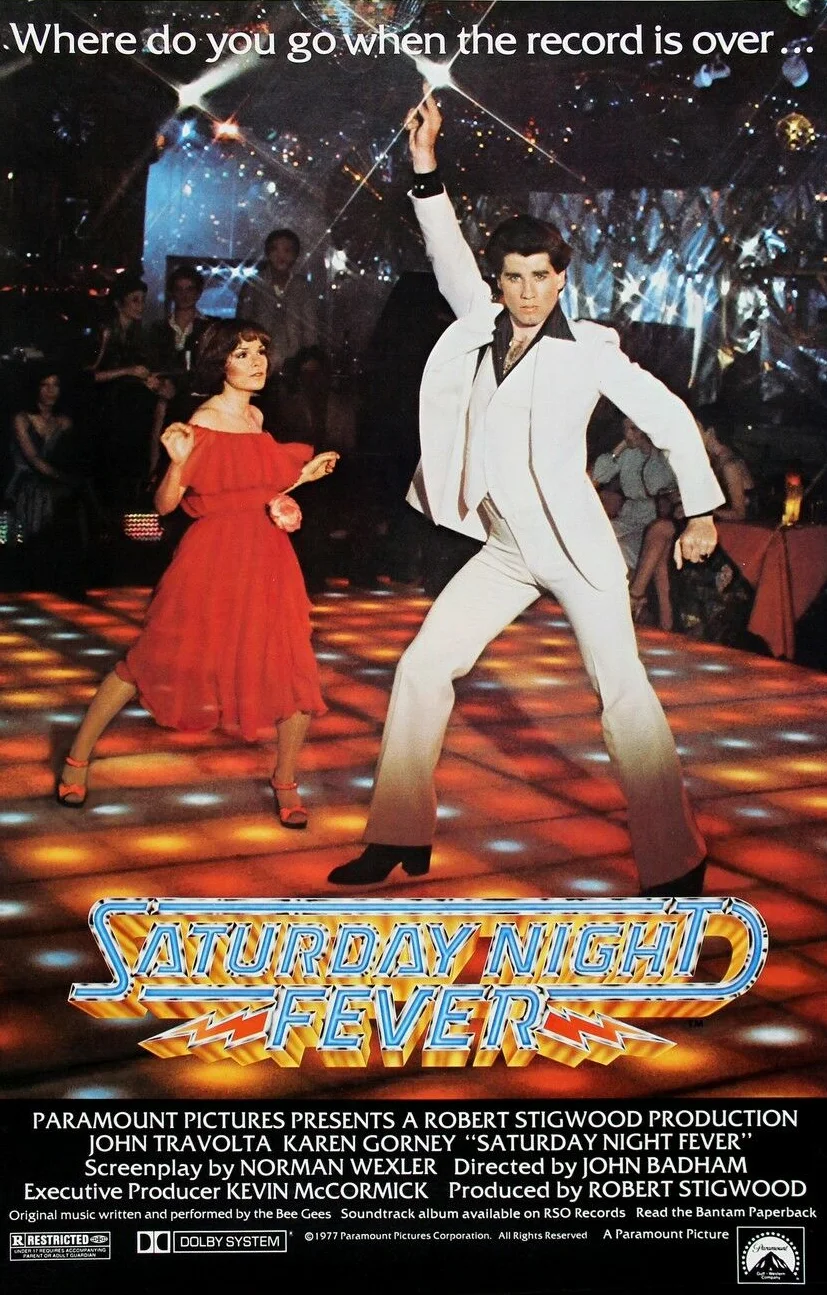 A Brooklyn paint store clerk by day and undisputed king of the dance floor by night, it's John Travolta's most
famous, iconic movie role. When I think of a film that captures a lost period, it's this one. At that time,
disco was strictly underground, but when the movie came out, the subculture just blew up and John Travolta,
although already famous because of the TV show Welcome Back, Kotter, became an instant international
superstar.
A Brooklyn paint store clerk by day and undisputed king of the dance floor by night, it's John Travolta's most
famous, iconic movie role. When I think of a film that captures a lost period, it's this one. At that time,
disco was strictly underground, but when the movie came out, the subculture just blew up and John Travolta,
although already famous because of the TV show Welcome Back, Kotter, became an instant international
superstar.
 Two Navy servicemen transport a prisoner from Norfolk, Virginia, to Portsmouth Naval Prison. On the way,
Jack Nicholson's Buddusky, aka Badass, has ideas of his own and wants to make it specially memorable for the
prisoner in a coming-of-age way. It's odd because why do the two men care about him? Well, dammit...Badass
has feelings and wants to prove he's a human being, not a robot.
Two Navy servicemen transport a prisoner from Norfolk, Virginia, to Portsmouth Naval Prison. On the way,
Jack Nicholson's Buddusky, aka Badass, has ideas of his own and wants to make it specially memorable for the
prisoner in a coming-of-age way. It's odd because why do the two men care about him? Well, dammit...Badass
has feelings and wants to prove he's a human being, not a robot.
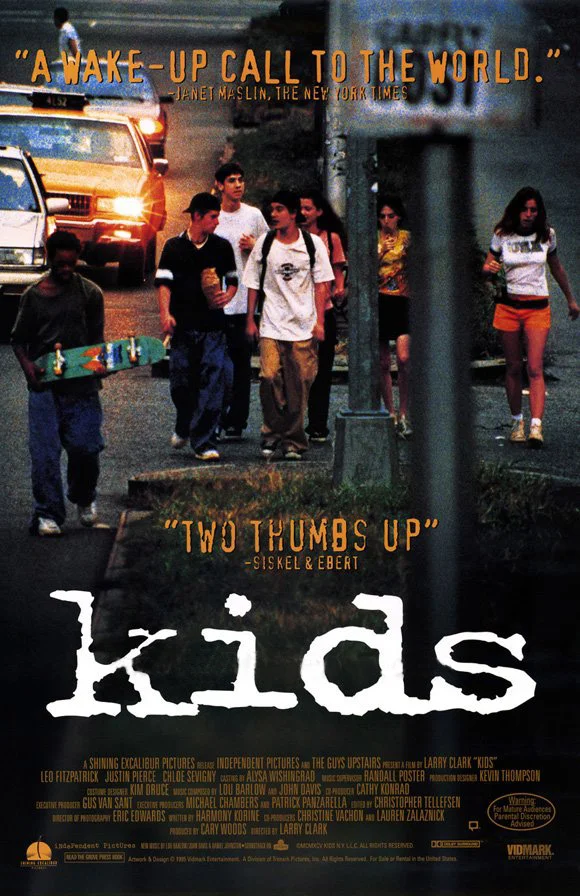 The ending is poignant when Casper asked: "Jesus Christ, what happened?" Shocking, edgy, raw, and real,
Kids is still a highly relevant picture. The situation depicted may be extreme, but there's a point
being made. I love how the characters come to a full circle, beginning with Telly infecting Jennie with AIDS
and ending with Casper getting the virus by raping Jennie.
The ending is poignant when Casper asked: "Jesus Christ, what happened?" Shocking, edgy, raw, and real,
Kids is still a highly relevant picture. The situation depicted may be extreme, but there's a point
being made. I love how the characters come to a full circle, beginning with Telly infecting Jennie with AIDS
and ending with Casper getting the virus by raping Jennie.
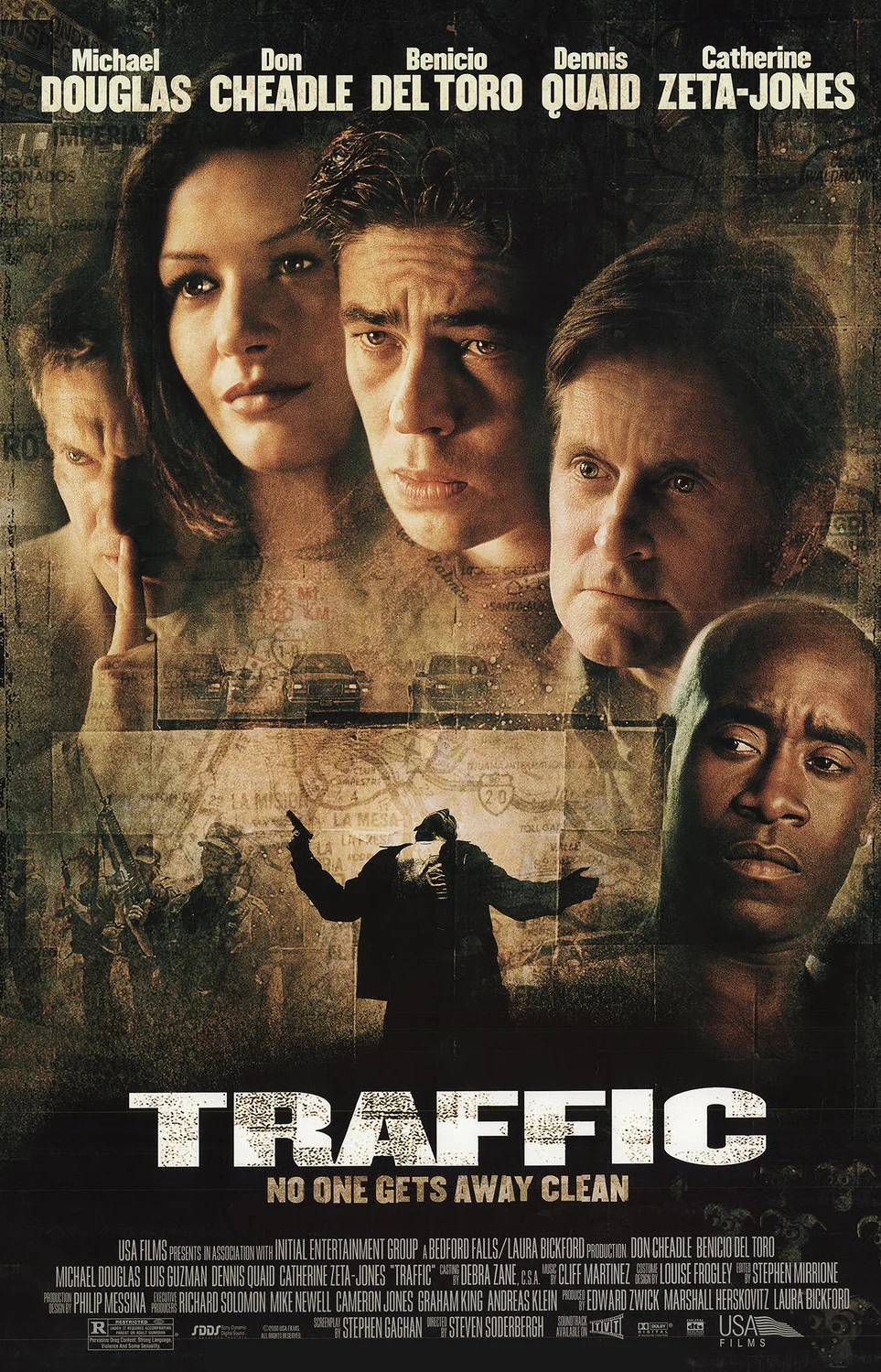 Benicio del Toro is the reason to watch this film over and over. It's such a classy performance that ends with
his character watching a kids baseball game and knowing what he had done. Benicio del Toro has another great
scene when he's in the pool with two DEA agents for a chat. There are other standouts as well, and the Mexico
scenes are gritty to watch.
Benicio del Toro is the reason to watch this film over and over. It's such a classy performance that ends with
his character watching a kids baseball game and knowing what he had done. Benicio del Toro has another great
scene when he's in the pool with two DEA agents for a chat. There are other standouts as well, and the Mexico
scenes are gritty to watch.
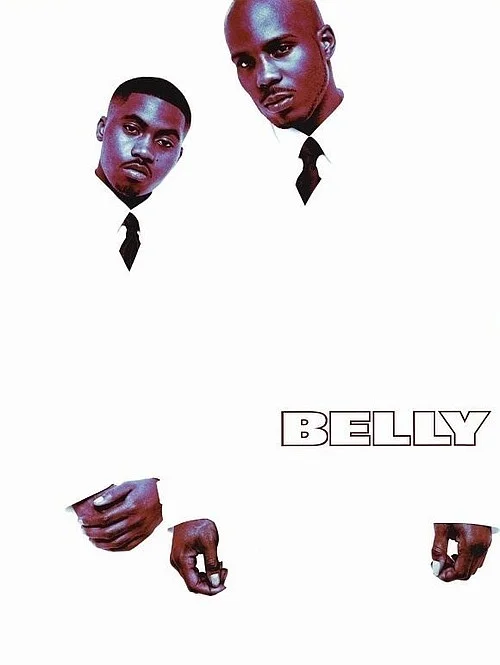 The top-notch opening sequence is what ensures film's high replayability value. Because of how smooth the editing
is, the transition from one scene to another is hypnotic. In a way, Belly feels like a long but
highly-stylized music video with an overriding message that it's about destruction while the black ghetto culture
comes alive with emphasis on fashion and style.
The top-notch opening sequence is what ensures film's high replayability value. Because of how smooth the editing
is, the transition from one scene to another is hypnotic. In a way, Belly feels like a long but
highly-stylized music video with an overriding message that it's about destruction while the black ghetto culture
comes alive with emphasis on fashion and style.
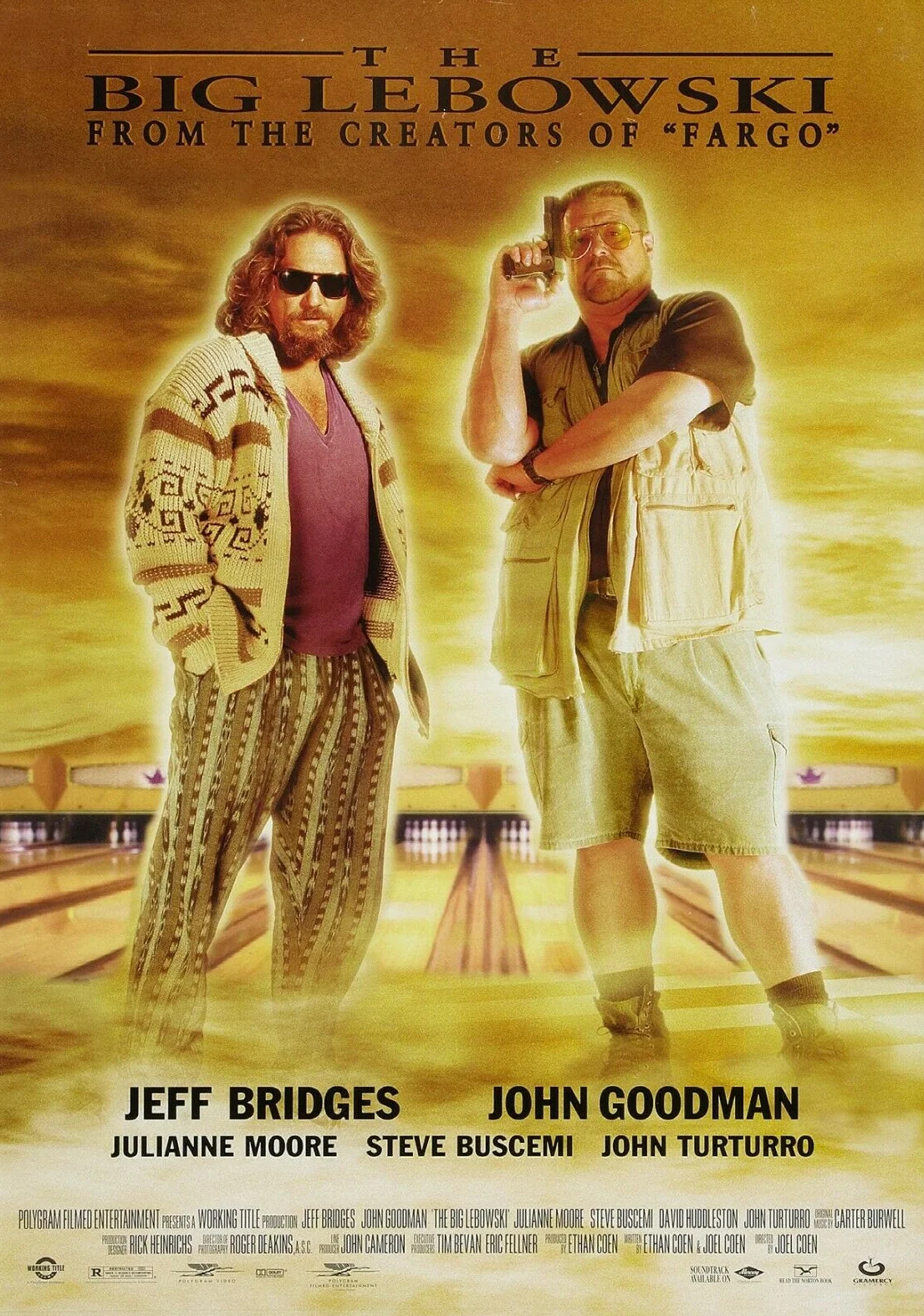 Memorable characters come and go. Clever is the plot that's backed by well-written dialogue which is heavily
laden with profanity and a dry sense of humor. Jeff Bridges is The Dude. Motivated by weed, bowling, and White
Russian drinks, he's the hippie version of Sam Spade, Jake Gittes, and Philip Marlowe all rolled into one.
Memorable characters come and go. Clever is the plot that's backed by well-written dialogue which is heavily
laden with profanity and a dry sense of humor. Jeff Bridges is The Dude. Motivated by weed, bowling, and White
Russian drinks, he's the hippie version of Sam Spade, Jake Gittes, and Philip Marlowe all rolled into one.
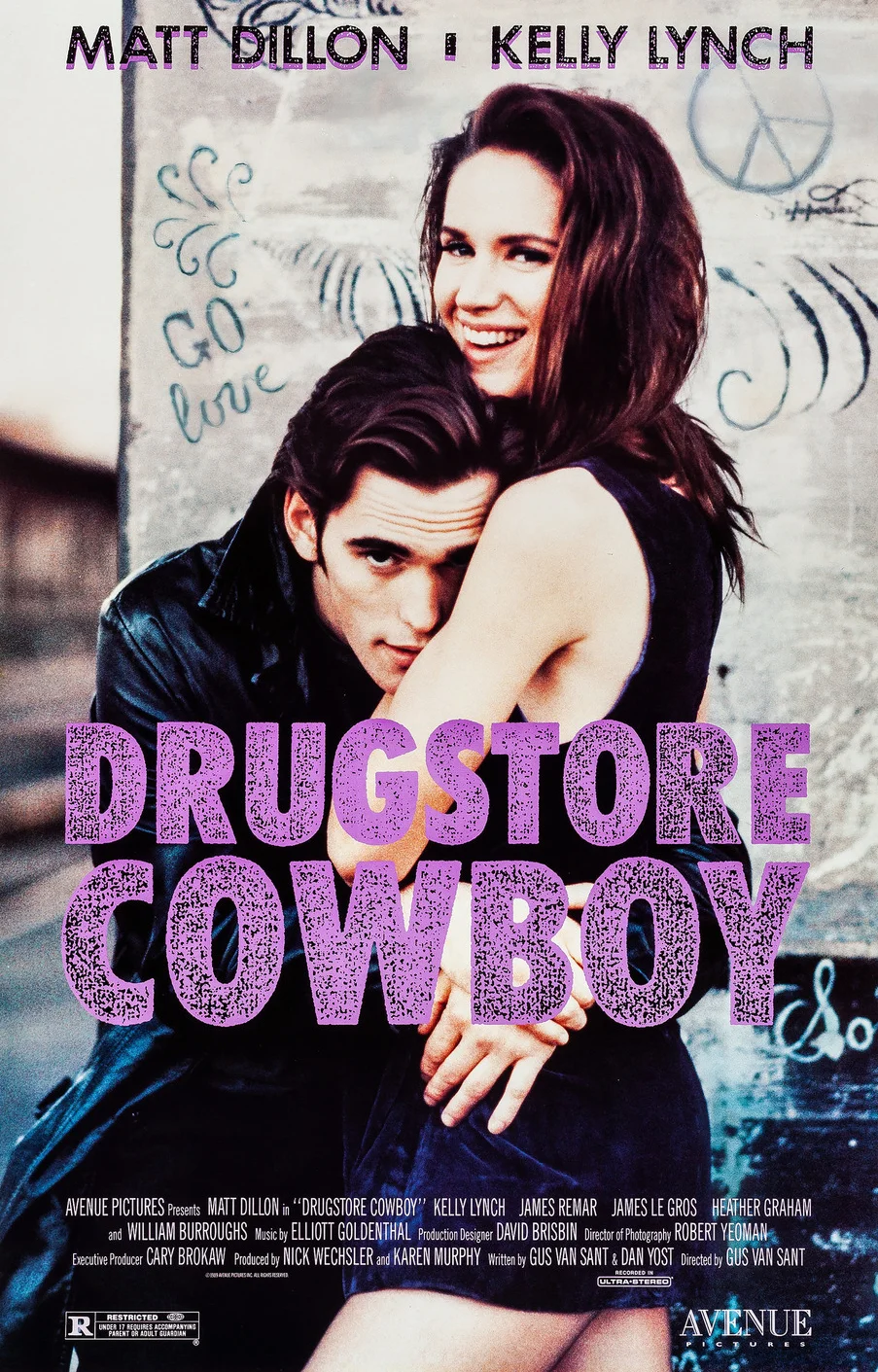 Matt Dillon's performance in Drugstore Cowboy is a royal treatment for all of his fans. Never the one
to glamorize drugs, it's about a nomadic group of drug addicts robbing pharmacies and hospitals across the
Pacific Northwest to support their habits. Heather Graham scores a nice debut, and William Burroughs has a
masterful performance.
Matt Dillon's performance in Drugstore Cowboy is a royal treatment for all of his fans. Never the one
to glamorize drugs, it's about a nomadic group of drug addicts robbing pharmacies and hospitals across the
Pacific Northwest to support their habits. Heather Graham scores a nice debut, and William Burroughs has a
masterful performance.
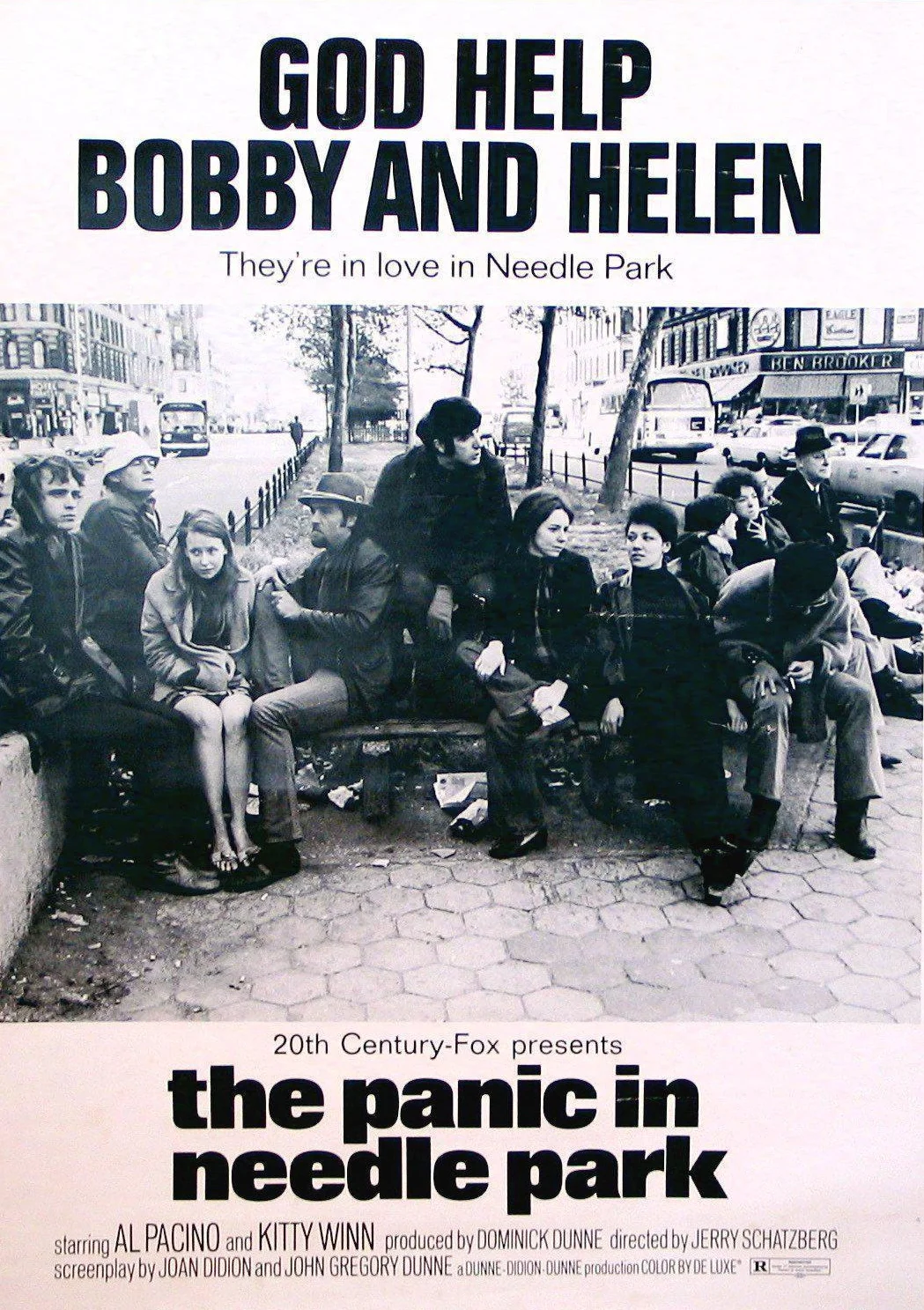 The Panic in Needle Park is a must-see for all Al Pacino fans. Although real and gritty, the story is
old hat by now. The junkie scene just goes on and on for almost two hours with no spiral in place. Luckily, it
has Al Pacino and Kitty Winn to rely on to keep the interest going. Their performances alone are worth the price
for admission.
The Panic in Needle Park is a must-see for all Al Pacino fans. Although real and gritty, the story is
old hat by now. The junkie scene just goes on and on for almost two hours with no spiral in place. Luckily, it
has Al Pacino and Kitty Winn to rely on to keep the interest going. Their performances alone are worth the price
for admission.
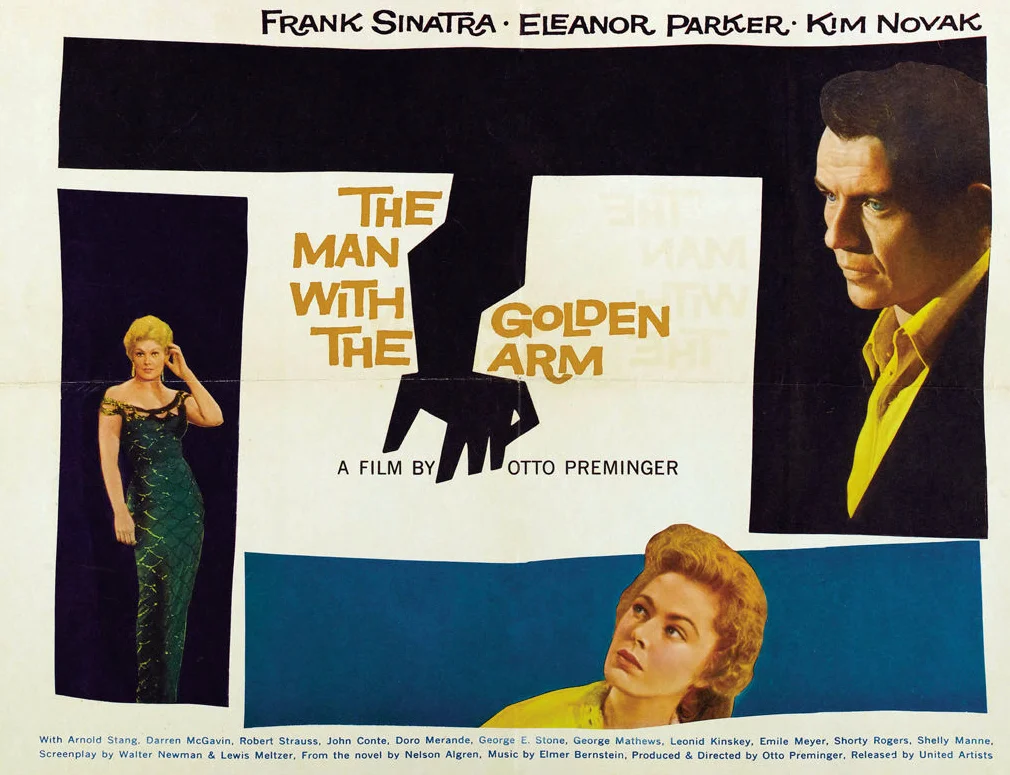 Frank Sinatra makes a dramatic comeback in The Man with the Golden Arm, the first picture to tackle the
subject of heroin addiction. It's the Drugstore Cowboy of the 50's. Kim Novak is beautiful as ever and
shows what she's capable of before becoming famous for Vertigo three years later.
Frank Sinatra makes a dramatic comeback in The Man with the Golden Arm, the first picture to tackle the
subject of heroin addiction. It's the Drugstore Cowboy of the 50's. Kim Novak is beautiful as ever and
shows what she's capable of before becoming famous for Vertigo three years later.
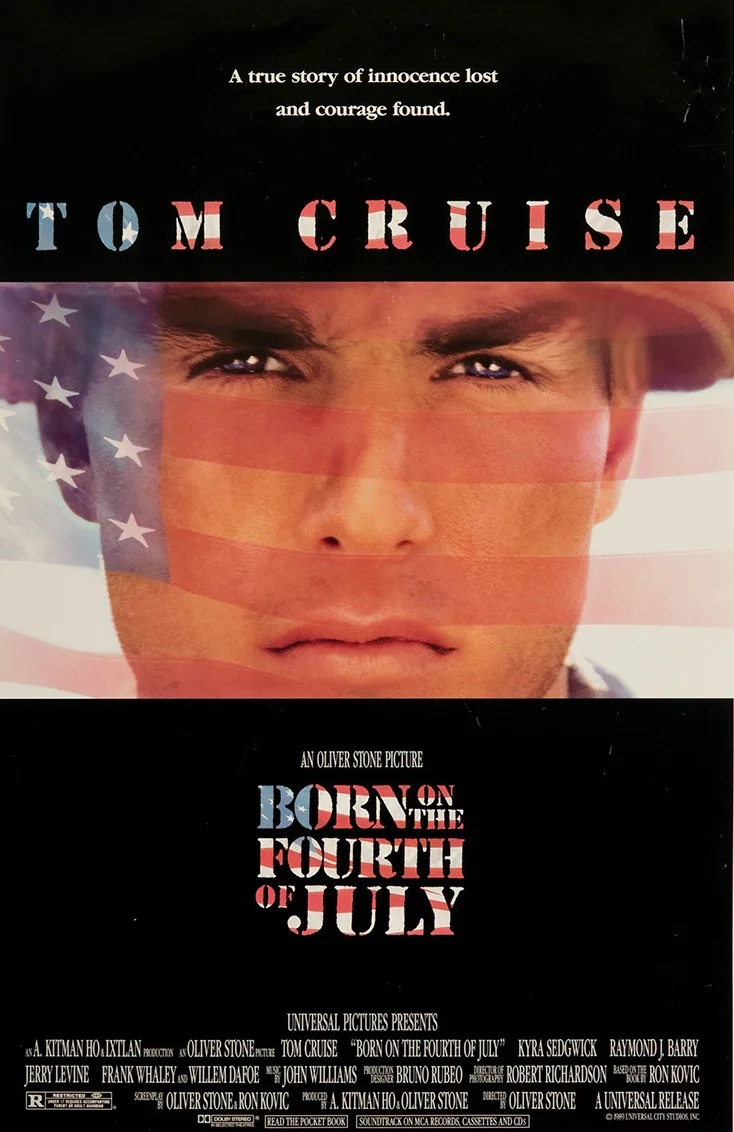 An epic of Ron Kovic's life with lots of highs and lows, Born on the Fourth of July is the one Tom Cruise
will be remembered for eternity. It's to Oliver Stone's credit for making the film seamless and moving. He also
takes advantage of Ron Kovic's autobiographical story to tell how one disabled Vietnam veteran went from an
idealistic patriot to a cynical, jaded hater because of the lies that were spoon-fed to him.
An epic of Ron Kovic's life with lots of highs and lows, Born on the Fourth of July is the one Tom Cruise
will be remembered for eternity. It's to Oliver Stone's credit for making the film seamless and moving. He also
takes advantage of Ron Kovic's autobiographical story to tell how one disabled Vietnam veteran went from an
idealistic patriot to a cynical, jaded hater because of the lies that were spoon-fed to him.
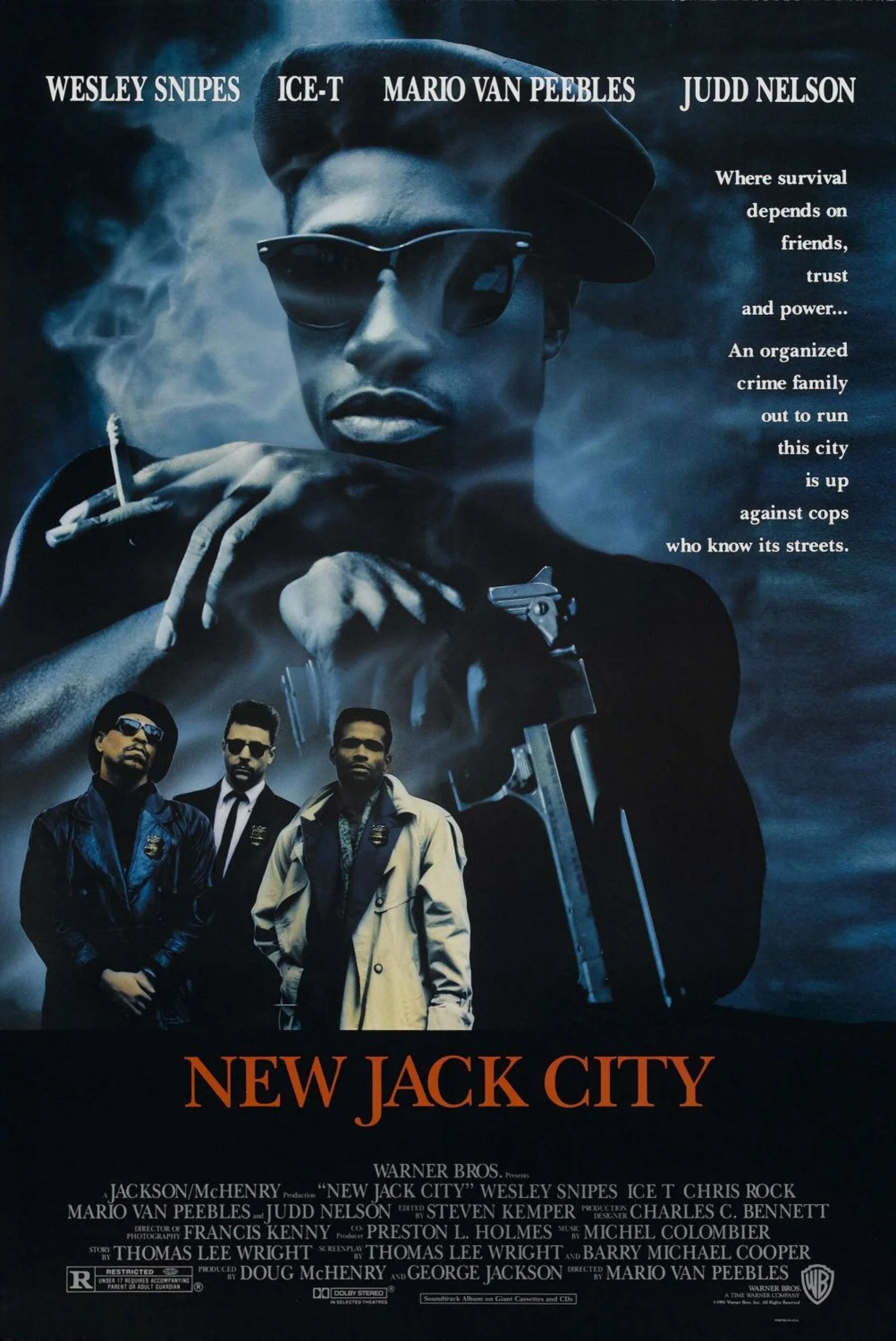 New Jack City is The Godfather of black cinema and continues to be an underrated hip-hop gangster
picture. There's an edge to it that exudes style through captivating storytelling and hard-to-beat editing.
Wesley Snipes and Ice-T are unforgettable. Using the crack epidemic that ravaged New York City during the late
80's and early 90's, it's a perfect backdrop for a black drug lord like Nino Brown to make his presence known.
New Jack City is The Godfather of black cinema and continues to be an underrated hip-hop gangster
picture. There's an edge to it that exudes style through captivating storytelling and hard-to-beat editing.
Wesley Snipes and Ice-T are unforgettable. Using the crack epidemic that ravaged New York City during the late
80's and early 90's, it's a perfect backdrop for a black drug lord like Nino Brown to make his presence known.
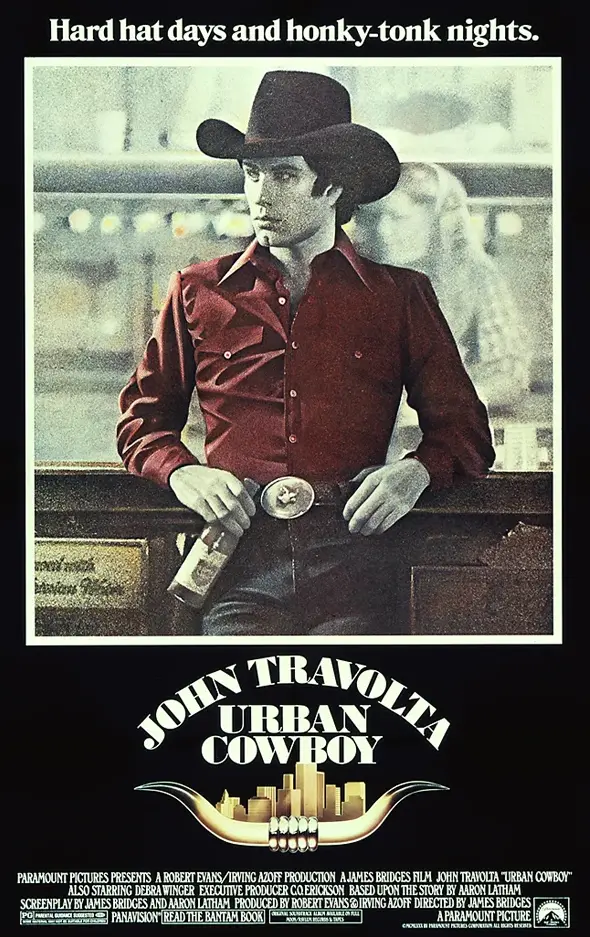 Urban Cowboy is the Saturday Night Fever of honky-tonk pictures. It's the relationship between Bud
and Sissy, who are played well by John Travolta and Debra Winger, that makes this film a romantic classic. At the
same time, it's cool to see the characters dress up as cowboys and mix in with the ambience of dance hall for the
country and western flavor.
Urban Cowboy is the Saturday Night Fever of honky-tonk pictures. It's the relationship between Bud
and Sissy, who are played well by John Travolta and Debra Winger, that makes this film a romantic classic. At the
same time, it's cool to see the characters dress up as cowboys and mix in with the ambience of dance hall for the
country and western flavor.
 if you are looking for a combination of Bonnie and Clyde and Drugstore Cowboy,
Another Day in Paradise is your best bet. As expected, James Woods dominates the show. The material is
perfect for him, and he carves out a believable bad person who uses people at will. The writing is consistently
excellent, making it easy to be absorbed by what's going on.
if you are looking for a combination of Bonnie and Clyde and Drugstore Cowboy,
Another Day in Paradise is your best bet. As expected, James Woods dominates the show. The material is
perfect for him, and he carves out a believable bad person who uses people at will. The writing is consistently
excellent, making it easy to be absorbed by what's going on.
 When it comes to alcoholism, Day of Wine and Roses is as accurate as it gets. The ending is realistic as
well. It's among Jack Lemmon's best performances, and he was rightfully Oscar-nominated. So was Lee Remick.
The legendary tough guy Charles Bickford is reduced to tears while Jack Klugman gives his
two cents, especially when it comes to the validity of Alcoholics Anonymous.
When it comes to alcoholism, Day of Wine and Roses is as accurate as it gets. The ending is realistic as
well. It's among Jack Lemmon's best performances, and he was rightfully Oscar-nominated. So was Lee Remick.
The legendary tough guy Charles Bickford is reduced to tears while Jack Klugman gives his
two cents, especially when it comes to the validity of Alcoholics Anonymous.